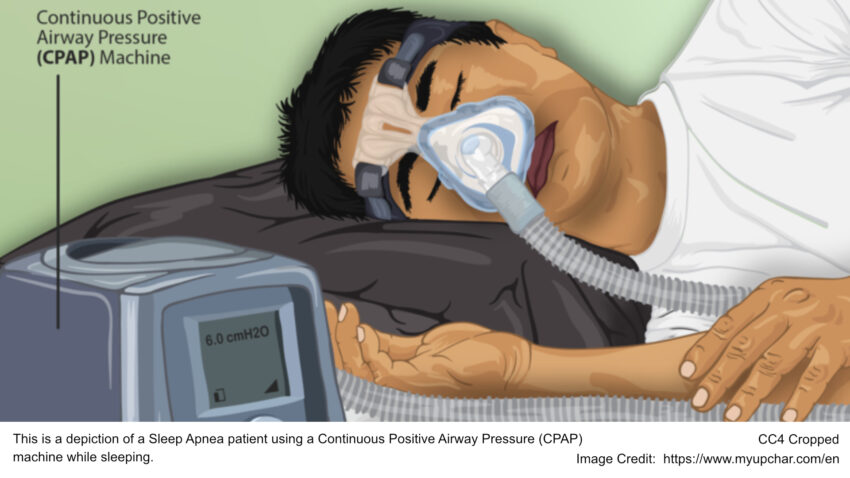The U.S. Food and Drug Administration (FDA) recently approved Zepbound (tirzepatide), the first medication for obstructive sleep apnea (OSA). Zepbound is designed for adults with obesity and moderate to severe OSA. This approval marks a significant milestone in sleep apnea treatment. Traditionally, treatments focused on devices like Continuous Positive Airway Pressure (CPAP) machines. Now, a pharmaceutical option is available for patients struggling with existing therapies.
- FDA Approval of Zepbound: Zepbound (tirzepatide) is the first medication approved for obstructive sleep apnea (OSA), providing an alternative to traditional treatments like CPAP machines.
- Dual Benefits: Zepbound aids in weight loss by activating hormone receptors (GLP-1 and GIP), addressing obesity, a major risk factor for OSA, while reducing apnea episodes.
- Potential Side Effects: While effective, Zepbound may cause nausea, fatigue, and gastrointestinal issues. Patients with certain thyroid conditions should avoid its use.
- Quality of Life Impact: Beyond patient health, Zepbound reduces snoring and apnea symptoms, improving sleep for both patients and their partners.
Dr. Sally Seymour, a notable figure in the FDA’s Center for Drug Evaluation and Research, applauded the approval. She expressed optimism about this new treatment for OSA patients. Medical professionals, including sleep therapist Dr. Wendy Troxel, have shared similar sentiments. Their support reflects the potential benefits of Zepbound for patients who find CPAP machines intolerable. According to the FDA, OSA disrupts sleep by causing breathing pauses due to airway blockages. This condition affects around 30 million Americans, primarily those who are overweight or obese.
Zepbound works by activating receptors of hormones secreted from the intestine, similar to popular weight loss drugs like Ozempic and Wegovy. These hormones, GLP-1 and GIP, reduce appetite and food intake, thus aiding weight loss. The FDA highlights studies where Zepbound showed significant improvements in apnea or hypopnea events over 52 weeks. Participants also experienced meaningful weight loss, which is crucial since obesity is a major risk factor for sleep apnea.
Despite its benefits, Zepbound has potential side effects. Common issues include nausea, diarrhea, vomiting, and stomach discomfort. Some patients may experience fatigue, allergic reactions, and gastroesophageal reflux disease. Notably, Zepbound has caused thyroid C-cell tumors in rats, but its effects on humans remain unclear. Therefore, patients with a history of medullary thyroid cancer or multiple endocrine neoplasia syndrome type 2 should avoid this medication.
Dr. Troxel emphasizes the importance of treating sleep apnea, not just for patients but also for their partners. Untreated sleep apnea often involves loud snoring and gasping, which can disrupt partners’ sleep. By reducing these symptoms, Zepbound can improve quality of life for both patients and their partners. Dr. William Lu from Dreem Health in San Francisco also supports this new treatment. He believes Zepbound offers hope for managing obesity and sleep apnea, two prevalent health issues in the U.S.
For those considering Zepbound, Dr. Lu advises consulting with healthcare providers. Testing for sleep apnea is essential before starting this medication. While Zepbound presents a promising alternative, it should complement lifestyle changes like a healthy diet and regular exercise. This approach ensures patients achieve the best possible outcomes.
- FDA – “Zepbound approval and its implications for sleep apnea treatment.”
- American Academy of Sleep Medicine – “Tirzepatide’s potential in managing OSA and obesity.”
- Dreem Health – “Advancing sleep health with new pharmaceutical solutions.”

